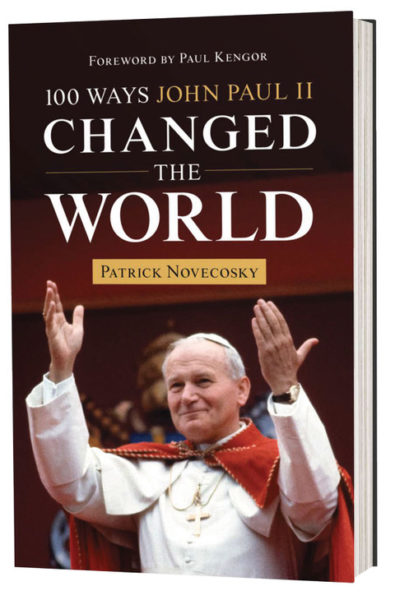SEPTEMBER 21, 2010 — Despite the fact that secularism has nearly overrun the United Kingdom over the past few decades, the celebration that surrounded Pope Benedict XVI’s historic visit last week was a breath of fresh air. Nearly 100,000 strong gathered to welcome him to Scotland when he landed there on Sept. 16.
The visit made history on several fronts. It was the first-ever state visit to the UK by a pope. Former British Prime Minister Gordon Brown invited the Holy Father in February 2009. Pope John Paul II’s 1982 trip to the UK, by contrast, was a pastoral visit.
On the last day of Benedict’s four-day trip, he beatified Cardinal John Henry Newman, the preeminent Catholic convert of the 19th century. Newman is the first non-martyred Englishman to advance toward canonization since King Henry VIII sat on the throne. It was also the first beatification Pope Benedict has presided over.
Although these “firsts” are significant, perhaps even more significant is the thawing of anti-Catholic sentiment that began to brew in the weeks leading up to the visit. A few prominent atheists called for the Pope’s arrest earlier this year due to the sexual abuse scandal, various secular pundits took swipes in the media at Catholics, and on the second day of the visit, five men were arrested for concocting a terrorist plot against the Pope. Another was arrested the following day. No doubt the prayers of the faithful were instrumental in disrupting the plot.
Pope Benedict’s deliberate and effective message of respect, tolerance, and dialogue struck a chord with his listeners. In a live broadcast message to Catholic schools across the UK, he told students that effective science and research require open minds. “The world needs good scientists, but a scientific outlook becomes dangerously narrow if it ignores the religious and ethical dimension of life, just as religion becomes narrow if it rejects the legitimate contribution of science to our understanding.”
In the most delicate political address of his trip, the Holy Father addressed 1,800 British politicians, business leaders, and intellectuals at Westminster Hall, the very spot where St. Thomas More was condemned to death in 1535 for refusing to accept Henry’s Act of Supremacy over the Church of England.
“If the moral principles underpinning the democratic process are themselves determined by nothing more solid than social consensus,” the Pope said, “then the fragility of the process becomes all too evident. Herein lies the real challenge for democracy.” Among those attending were former prime ministers Margaret Thatcher, John Major, Tony Blair, and Gordon Brown. The Pope greeted each one personally before leaving the hall amid great applause.
Cool weather and sporadic sprinkles of rain were no obstacle to the 55,000 pilgrims attending the beatification of Cardinal Newman on Sunday. In his homily, the Holy Father said that “in Blessed John Henry, that tradition of gentle scholarship, deep human wisdom and profound love for the Lord has borne rich fruit, as a sign of the abiding presence of the Holy Spirit deep within the heart of God’s people, bringing forth abundant gifts of holiness.”
It remains to be seen whether or not the new Blessed’s intercession will result in a revival, but one thing is sure: The UK will forever be a little brighter after seeing the successor of Peter.
Patrick Novecosky is the founder and editor of The Praetorium.

